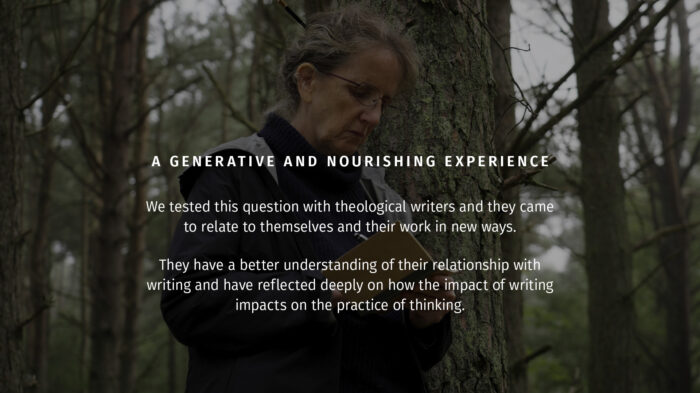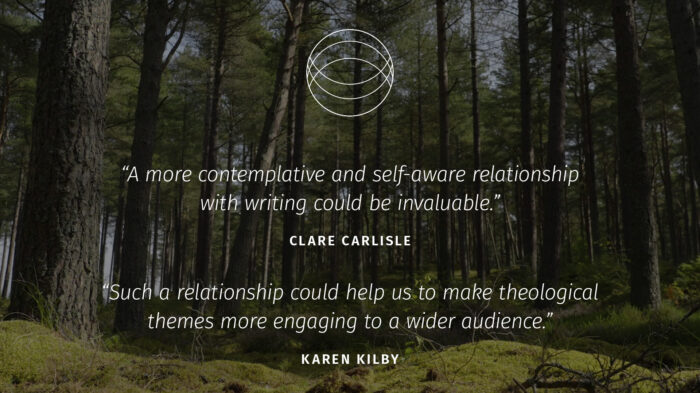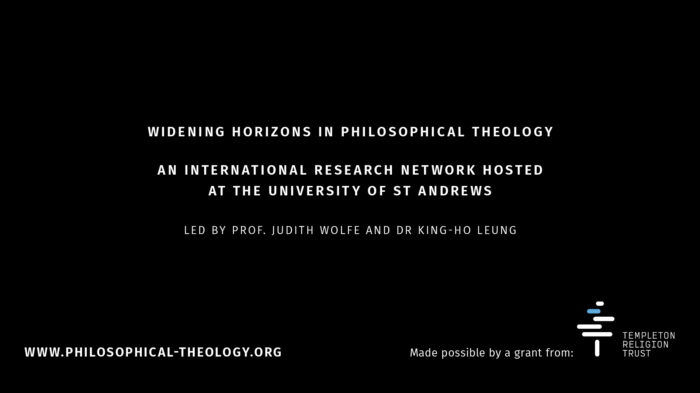Clare Carlisle and Karen Kilby
Project leaders:
Prof. Clare Carlisle (King’s College London)
Prof. Karen Kilby (Durham University)
Title:
Theological Practice: Enquiry and Poesis
Description:
The project aims to generate new understanding of the craft and practice of philosophical theology, conceived as a spiritual practice. It undertakes a phenomenological enquiry enriched by both ressourcement of monastic practices and engagement with the arts. It responds directly to two of the Strategic Areas for Attention identified in the Widening Horizons vision: spiritual practice, and the method of ressourcement.
Focusing on the practice of academic writing, the project will explore “enquiry” and “poesis” (or “finding” and “making”), conceived as intertwined elements of theological practice. This conception is underpinned by a theological anthropology that recognises human being as at once truth-seeking and poetic. Our investigation of writing practice is structured by questions in six areas: desire, resistance, agency, relationship, temporality, and forms of life. In each of these areas theology has something distinctive to contribute, and we seek to develop a specifically theological model of academic practice that is informed by broadly continental traditions of philosophy.
Our project will break new ground in thematising and illuminating the practice of theological enquiry – a neglected subject, despite its deep and wide significance across the discipline. It will also provide practical guidance and orientation to scholars in the field, not least by supplying a vocabulary that facilitates reflection and discussion of aspects of intellectual work that often remain tacit and unexamined. Immediate outcomes include a phenomenological modelling of theological practice that draws on the experience of leading scholars during a series of writing retreats. A key written output will be a Manual of Theological Practice designed for PhD students and supervisors.
This innovative practice-oriented project poses new questions, and it will generate new thinking about issues relevant to everyone in the field. We seek to creatively shape philosophical theology in ways that promote and protect the vitality of the discipline for future generations of scholars.
Final report:
At the heart of this project were four writing retreats, in which academic theologians and philosophers were given unusual conditions in which to pursue their writing and to reflect on their experience of it. One writing retreat took place at Gladstone’s Library and three at Douai Abbey, a Benedictine monastery. While the writing retreats were originally conceived as occasions in which we might gather data, we came over time to see them as themselves the most important “outputs” of the project.
On three of the writing retreats, there was a predominance of senior academics, including people who supervise doctorates at Oxford, Durham, Aberdeen, Yale, Kings College London, Edinburgh, St Andrews and Exeter. The final retreat had a focus on PhD students and early career researchers. The retreats included elements drawn from monastic life which are not a routine part of ordinary university life, including the use of silence, a carefully structured day, an avoidance of hierarchy and unusual listening practices. Retreatants were encouraged to become reflective on their experience of writing in a range of distinctive ways. We were supported in the retreats by the warm hospitality of the (male) Benedictine community, and accompanied on the final retreat by two women religious, one drawn from a contemplative and one an active order.
We believe that these retreats, together with a series of writing workshops which have unexpectedly emerged from the project, may prove the first steps in introducing something new into theological practice, especially in the UK — an openness to experimenting with techniques sourced from the monastic tradition and the beginnings of a new level of reflexivity about the intellectual, emotional and spiritual terrain of the practice of theological and philosophical writing. They also provide a useful step towards drawing different worlds (university, monastic and religious life) into fruitful exchange. Fundamentally, we believe we are beginning to create a new kind of “space” in which conversations which have not previously been easy — about the spiritual, emotional and intellectual terrains of theological writing — can become routinely possible.
Beyond the retreats and workshops, we have also produced, in the final written report on the project, a synthesis and analysis of the reflections generated from both retreatants and other writers interviewed by the PI. This report also includes, as appendices, guides on how to run a writing retreat and how to run a writing workshop, to support the possibility that such retreats and workshops will move towards the mainstream of disciplinary practice.





